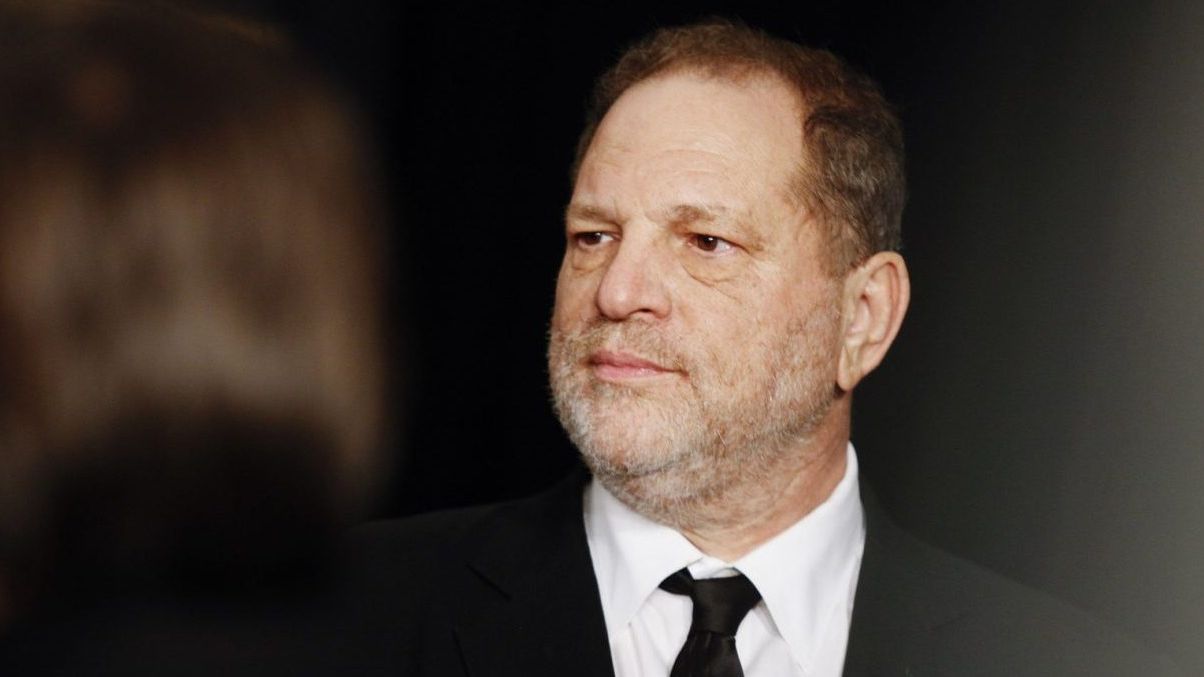

The rise and fall of Harvey Weinstein: a career in controversy
We document a life in influence, fame and infamy, as we chart the rise and fall of the movie industry’s most divisive impresario
- Words: Joseph Bullmore
Harvey Weinstein has long been one of hollywood’s most powerful figures. He is also among its most controversial. Today, we document a life in influence, fame and infamy, as we chart the rise and fall of the movie industry’s most divisive impresario.
In the late sixties, Weinstein attended the University of Buffalo, where he earned a B.A. in English Literature. Away from the lecture theatre, the young entrepreneur began to produce rock concerts with friend and fellow student Horace “Corky” Burger. The university’s alumni pages report that the pair’s first ever gig was “a hugely successful 1972 Stephen Stills concert that led to the founding of Harvey and Corky Productions, which quickly became a fixture on the Buffalo music scene.” The scene was set for a career at the intersection of entertainment and business. ,
After a few years of steady growth on the concert circuit, by which point Harvey’s brother Bob has joined the business, Weinstein pivoted towards his true love: independent cinema. In 1979 the brothers formed Miramax, a company whose stated aim was to distribute independent films deemed to commercially unviable by the major studios. The company’s name was formed from the first names of the brothers’ parents, Miriam and Max.
The company’s first major success came after Weinsteins teamed up with British producer Martin Lewis, acquiring the US distribution rights to two concert films Lewis had produced for Amnesty International. The Secret Policeman’s Other Ball came to be a cult hit in the summer of 1982, establishing a workable business plan for Miramax: to distribute and promote films from other regions to a US audience.
Soon, the Weinstein brothers had released a string of unexpected breakout hits, including Sex, Lies, and Videotape, My Left Foot – in which Daniel Day-Lewis won an Oscar – and Cinema Paradiso, an Oscar winner for Best Foreign Language Film in 1990.
With a steady stream of commercially and critically successful hits under its belt, Miramax was courted by the Walt Disney Co. for a potential sale. After the $60 million acquisition, Miramax began to break further into the critical mainstream, pumping out a string of nineties smash moves such as Pulp Fiction, The English Patient, Scream, Good Will Hunting, and Shakespeare in Love.
By 1994, veteran filmmaker Woody Allen had become something of a pariah in Hollywood. The esteemed writer and director was under heavy scrutiny over the custody battle with his ex-wife Mia Farrow, and an alleged child abuse case brought by Farrow’s adopted daughter, Dylan.
Despite the controversy, Weinstein and Miramax decided to stand by Allen, and agreed to strike a deal with the director over his upcoming film Bullets Over Broadway.
As the film went into production, Weinstein released a statement in staunch support of Allen via The Los Angeles Times: “Shunned by Hollywood means nothing to Miramax. We’re talking about a comic genius. Chaplin was shunned by Hollywood; so were a great many other international filmmakers, including Fellini — and those are the people who belong with Miramax.”
In 2015, in an in-depth interview with Variety magazine, actor Ashley Judd came forward to claim that an unnamed studio mogul, bearing a striking resemblance to Harvey Weinstein, had sexually harassed her on the set of Kiss the Girls in 1997.
Later, Judd said that her concern at the time was how her career might be damaged – “How do I get out of the room as fast as possible without alienating Harvey Weinstein?” she said.
In the same year that the Judd incident was alleged to take place, Weinstein reached an undisclosed $100,000 settlement with actress Rose McGowan after an alleged incident in a hotel room at the Sundance Film Festival. According to legal documents obtained by the New York Times, the settlement was “not to be construed as an admission” by Weinstein, but simply a way to “avoid litigation and buy peace.”
Over the course of the 2000s, Weinstein helped produced some of the era’s most recognisable commercial hits, among them the Lord of the Rings trilogy, Chocolat, Cold Mountain, Kill Bill, The Aviator, Gangs of New York and Chicago. Each spanned the reaches of mass market success and critical acclaim with ease.
In 2004, Weinstein was appointed an honorary Commander of the Order of the British Empire for his ongoing contributions to the British film industry.
After extensive negotiations and huge media scrutiny, Disney and the Weinsteins announced in 2005 that they would not renew their contract obligations. Harvey and Bob soon announced that they would be founding their own independent production studio, named The Weinstein Company, along with directors Quentin Tarantino and Robert Rodriguez, and producer Colin Vaines.
The cause of the break up was rumoured to be a dispute over payments involving Michael Mooer’s documentary Fahrenheit 9/11. These rumours were confirmed in February 2011, when Moore took legal action against the Weinstein brothers, claiming he was owed $2.7 million in profits for the documentary. In February 2012, Moore dropped the lawsuit for an undisclosed settlement.
In 2008, NBC Universal sued the Weinstein Co. over a deal involving catwalk reality TV show, which Weinstein had allegedly conspired to move from the channel Bravo to competitor Lifetime. The Weinstein Co. settled with the claimants for an undisclosed sum.
In September 2009, Harvey Weinstein wrote a letter published in The Independent that defended the exiled filmmaker Roman Polanski, who has been accused repeatedly of sexual misconduct with underage girls. Polanski had fled the U.S. in 1978 following an arrest warrant for an alleged sexual assault on a 13-year-old girl.
Weinstein wrote: “I hope the U.S. government acts swiftly because filmmakers are looking for justice to be properly served. I will be organizing the effort myself by emailing everybody I know to sign the petition.” He added: “Roman Polanski is a man who cares deeply about his art and its place in this world. What happened to him on his incredible path is filled with tragedy, and most men would have collapsed. Instead, he became a great artist and continues to make great films.”
The 2010s saw a period of renewed success for The Weinstein Co, after the studio released a steady stream of smash hits, including The Fighter, The King’s Speech, My Week With Marilyn, Django Unchained, Silver Linings Playbook, The Butler, and Lion.
In 2012, Weinstein was named in the TIME magazine’s prestigious list as “one of the most influential people in the world”. Johnny Depp wrote the mogul’s introduction: “Now, no one gets to the top without the occasional scrap. While he’s certainly the charming servant to film he purports to be, Harvey isn’t afraid of a duke-’em-out. (I’ve had the pleasure of being both his ally and his enemy at various times.) He stops at nothing for what he believes in.”
In December 2013, Bob and Harvey were reunited with Miramax in a landmark co-production deal. The brothers said: “This is an amazing opportunity to work with the company named after our parents, Miriam and Max,”
In March 2015, Weinstein faced sexual assault claims by a woman who stated that the producer has sexually assaulted her in New York City. The Weinstein press office said: “We are cooperating fully with the authorities and are confident that we will be fully vindicated.”
On October 7th 2017, following a string of high-profile accusations in the New York Times over sexual assault and aggressive manipulation, Weinstein is put on indefinite leave from his company, before being fired, the following Monday, by the board.
By Tuesday the 10th, 13 further high-profile actresses and industry figures had spoken out about past abuses at the hands of Weinstein, including Gwyneth Paltrow, Angelina Jolie, Cara Delevingne, Lea Seydoux, Rosanna Arquette, and Mira Sorvino.
The next day, British film board Bafta announced the suspension of Weinstein’s membership with immediate effect. A statement from the Cannes Film Festival said that the event organisers were “dismayed” to learn of the allegations.
At the time of writing, Weinstein has checked himself into a “rehab” facility in Arizona, following a separation from second wife Georgina Chapman.
Meanwhile, Weinstein’s spokeswoman has said: “Any allegations of non-consensual sex are unequivocally denied”. A later statement read: “Mr Weinstein has begun counselling, has listened to the community and is pursuing a better path.”


